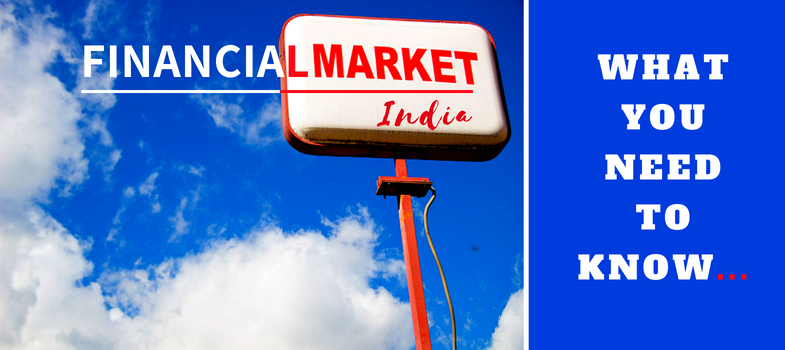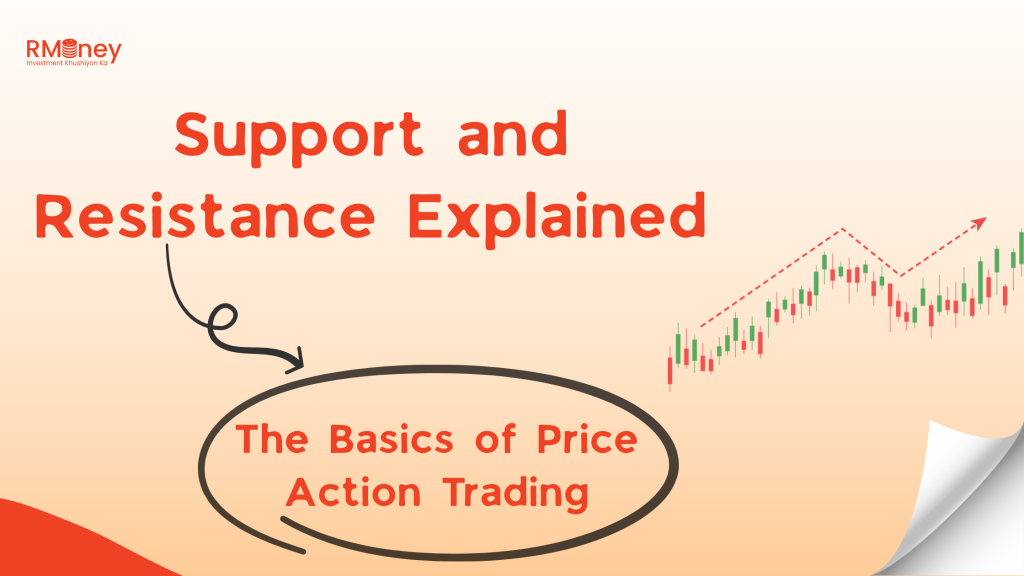A financial market is a marketplace for financial products. Here buyers and sellers interact with each other. They trade in financial assets like equities, bonds, mutual funds, currencies, and derivatives. The price discovery of such financial assets is purely the play of demand and supply of the underlying assets in the market.
Thus, the financial market acts as a bridge between those who have access money with those who are in deficit and in need of money. So, through financial market funds flows from suppliers to demander of the funds through the use of financial instruments. Now let us look at the different types of financial markets and their brief role.
Types of financial markets and their roles
Broadley speaking financial market can be subcategorized as following –
- Stock exchanges,
- Money market,
- Bond market,
- Foreign exchange, and
- Interbank market
1. Stock exchanges
Stock exchange provides a facility for trading and investing in sport and future market. Instruments that are stocks, commodities, and currencies. Future and options of these instruments are the part of the future segment of the market. Options trading includes both put and call options.
In Indian market not every instrument of spot market have their future and option counterpart. Very few future contracts are available and same with options contract. The next major issue with future and option market is that barring a few, there is an issue of liquidity and depth in these future and options contracts.
2. Money market
The money market in India is a marketplace for short duration funds requirements. The instruments of money markets have in general maturities that range from overnight to a year. Instruments include treasury bills, call money, commercial papers, certificate of deposits, repos, interest rate swaps, cash management bills and etc.
Retailers do not have permission to buy and sell all money market instruments directly. They have options to do so through mutual funds, investing exclusively in such instruments.
Also, not all corporates, institutions and banks of all categories have permission to trade in all these instruments. Details of money market instruments in India and RBI guidelines can be found here in this RBI document.
3. Bond market
In India, the bond market is also known as debt market. Here, in the bond market along with government bonds, corporate bonds are also traded. Some mutual funds schemes also deal exclusively with bonds. So we can consider them as a subpart of Indian bond market. However, government bonds dominate Indian bond market. Comparing to other bond markets, government bonds markets are highly liquid.
Government bonds are either sovereign bonds or municipal bonds. All sovereign bonds are in INR denomination while municipal bonds are in both INR and foreign currency denomination. So far only one municipal bond in HDK (Hong Kong Dollar) is issued.
In a similar way, corporate bonds are either in INR or foreign currency denomination. US Dollar, Singapore Dollar, and Euro-denominated corporate bonds are there in the market.
Indian corporates have issued these bonds in international markets to raise debt as Eurobonds, foreign bonds, quasi-debt instruments like FCCB’s (Foreign currency convertible bonds) and FRN’s (Floating Rate Notes).
Thus, Indian bond market has the following 5 subcategories –
- Government bond market
- Municipal bond market
- Corporate bond market
- Funding bond market
- Mortgage-backed and collateral debt obligation bond market
4. Foreign exchange market
Foreign exchange market is also known as international currency market. Here in this market you can buy and sell international currencies. We also call it Forex market. This market gives the organizational framework for the participants. Participants of forex market include individuals, banks, firms, merchants, traders, and governments.
The FEMA (The Foreign Exchange Management Act, 1999) regulates Indian forex market. However, all interbank forex trading is regulated by FEDAI (the Foreign Exchange Dealers Association of India).
In India, spot Forex market operates under three segments. In the first segment, all authorized dealers do the transaction with RBI. Then, these authorized dealers, who are mainly commercial banks do interbank dealings. And in last segments, these authorized dealers deal with customers both retail and corporate.
Basically, there are three types of foreign exchange market in India. Beside spot forex market, there is derivative market both forward forex market and future forex market. The last one is the settlement and dealing market.
5. Interbank market
Interbank market is mainly for banks. Here banks exchanges and trades different foreign currencies with each other. It is, in fact, a subpart of foreign exchange market in India. There are three main parts of interbank markets –
- Spot market
- Forward market
- SWIFT (The Society for Worldwide Interbank Financial Telecommunications)

Stock Trading Now trade in ₹9 Per Order or ₹ 999 Per Month Plans.
Future & Options Access F&O contracts with advanced tools for hedging and speculation.
Currency Trading Trade in major currency pairs and manage forex exposure efficiently.
Commodity Trading Diversify Trading with MCX & NCDEX by Trading in Gold, Silver, Base Metals, Energy, and Agri Products.
Margin Trading Funding Boost your buying power with upto 5X, Buy now Pay Later
Algo Trading Back test, Paper Trade your logic & Automate your strategies with low-latency APIs.
Trading View Leverage Trading View charts and indicators integrated into your trading platform.
Advanced Options Trading Execute multi-leg option strategies with precision and insights.
Stock Lending & Borrowing Earn passive income by lending stocks securely through SLB.
Foreign Portfolio Investment Enable NRIs and FPIs to invest in Indian markets with ease and compliance.
IPO Invest in upcoming IPOs online with real-time tracking and instant allotment updates.
Direct Mutual Funds 0% Commissions by investing in more than +3500 Direct Mutual Fund Scheme.
Corporate FDRs Earn fixed returns with low-risk investments in high-rated corporate fixed deposits.
Stocks SIPs Build long-term wealth with systematic investment plans in top-performing stocks.
Bonds & NCDs Access secure, fixed-income investments through government and corporate bond offerings.
Depository Services Safely hold and manage your securities with seamless Demat and DP services with CDSL.
Journey Tracing our growth and milestones over time.
Mission & Vision Guided by purpose, driven by long-term vision.
Why RMoney Platform Smart, reliable platform for all investors' needs.
Management Experienced leadership driving strategic financial excellence.
Credentials Certified expertise with trusted industry recognition.
Press Release Latest company news, updates, and announcements.
Testimonials Real client stories sharing their success journeys.
7 Reasons to Invest Top benefits that make investing with us smart.
SEBI Registered Research Trusted insights backed by SEBI-compliant research.
Our Technology Advanced tools enabling efficient online trading.
Calculators Access a suite of smart tools to plan trades, margins, and returns effectively.
Margin Calculator Instantly check margin requirements for intraday and delivery trades.
MTF Calculator Calculate MTF funding cost upfront to ensure full transparency before placing a trade.
Brokerage Calculator Know your exact brokerage charges before placing any trade.
Market Place Explore curated investment products and trading tools in one convenient hub.
RMoney Gyan Enhance your market knowledge with expert blogs, videos, and tutorials.
Performance Tracker Track our research performance with full transparency using our performance tracker.
Feedback Share your suggestions or concerns to help us improve your experience.
Downloads Access important forms, software, and documents in one place.
Locate Us Find the nearest RMoney branch or service center quickly.
Escalation Matrix Resolve issues faster with our structured support escalation process.
Back Office Log in to view trade reports, ledger, and portfolio statements anytime.
Account Modification Update personal or bank details linked to your trading account.
Fund Transfer Transfer funds instantly online with quick limit updation to your trading account.
Bank Details View our registered bank account details for seamless transactions by NEFT, RTGS or IMPS.
How to Apply IPO Step-by-step guide to apply for IPOs using your trading account.
RMoney Quick Mobile App Trade on-the-go with our all-in-one mobile trading app.
RMoney Quick login Quickly access your trading account through the RMoney Quick web-based trading.
RMoney Rocket Web Version Experience powerful web-based trading with advanced tools for algo traders.
RMoney Rocket Mobile Version Trade anytime, anywhere with our feature-rich mobile trading platform.




















